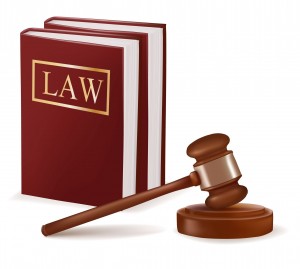
Defending yourself in the court of law is tough enough without attempting to understand all of the legal jargon being tossed around. That’s one of the reasons we recommend hiring an attorney, but if you decide to handle your case on your own, we thought we’d help by explaining some common legal terms you might hear throughout your case. Here’s Part 1, which covers letters A though H. Part 2 and Part 3 will be posted next week.
Legal Terms You Should Know
Here are some common legal terms you might come across:
Acquittal – As a defendant, this is what you want to hear at the end of your case. This is a jury verdict that means the defendant has been found not guilty, or that the judge didn’t find sufficient evidence to convict.
Admissible/Inadmissible – If evidence is admissible, it means it can be used in the court of law. Anything that is inadmissible is not allowed.
Affidavit – A person’s written statement made under oath.
Appeal – A request made after trial by the losing party asking a higher court to review the original decision.
Arraignment – Click here for a full explanation of an arraignment.
Bail – Prior to the start of a trial, a person suspected of the crime can be released by posting bail. Bail is a set amount of money or pre-trial conditions that must be met in order to be granted pre-trial release.
Brief – A printed or written statement submitted to the court that explains one’s side of the legal argument.
Burden of Proof – The burden of proof is the duty to prove, beyond a reasonable doubt, the disputed facts. In criminal cases, the burden of proof falls on the plaintiff.
Counsel – Your lawyer, or a basic term for legal advice.
Defendant – The person being accused of the crime.
Discovery – A time period before trial in which both sides obtain and disclose evidence they plan to submit during trial.
Due Process – Due process is the constitutional guarantee that a defendant will receive a fair and impartial trial.
Evidence – Information presented a trial in order to prove one side’s case.
Exclusionary Rule – An order that states evidence obtained illegally will not be admissible in the court of law.
Expungement – This is a motion to have the records of an earlier conviction be sealed, which means they would be inaccessible through state or federal repositories.
Felony – A very serious crime, usually carrying a minimum of one year in prison if convicted.
Grand Jury – A collection of between 16 and 23 citizens who hear evidence of criminal allegations, put for by prosecutors, to determine if there is probable cause that a person committed an offense. This term was thrown around a lot during the shooting in Ferguson.
Hearsay – Evidence presented by a witness who did not see or hear the incident in question, but heard of the encounter from someone else. Hearsay is generally not admissible at trial.
That’s it for now! Check back next week for more terms.





